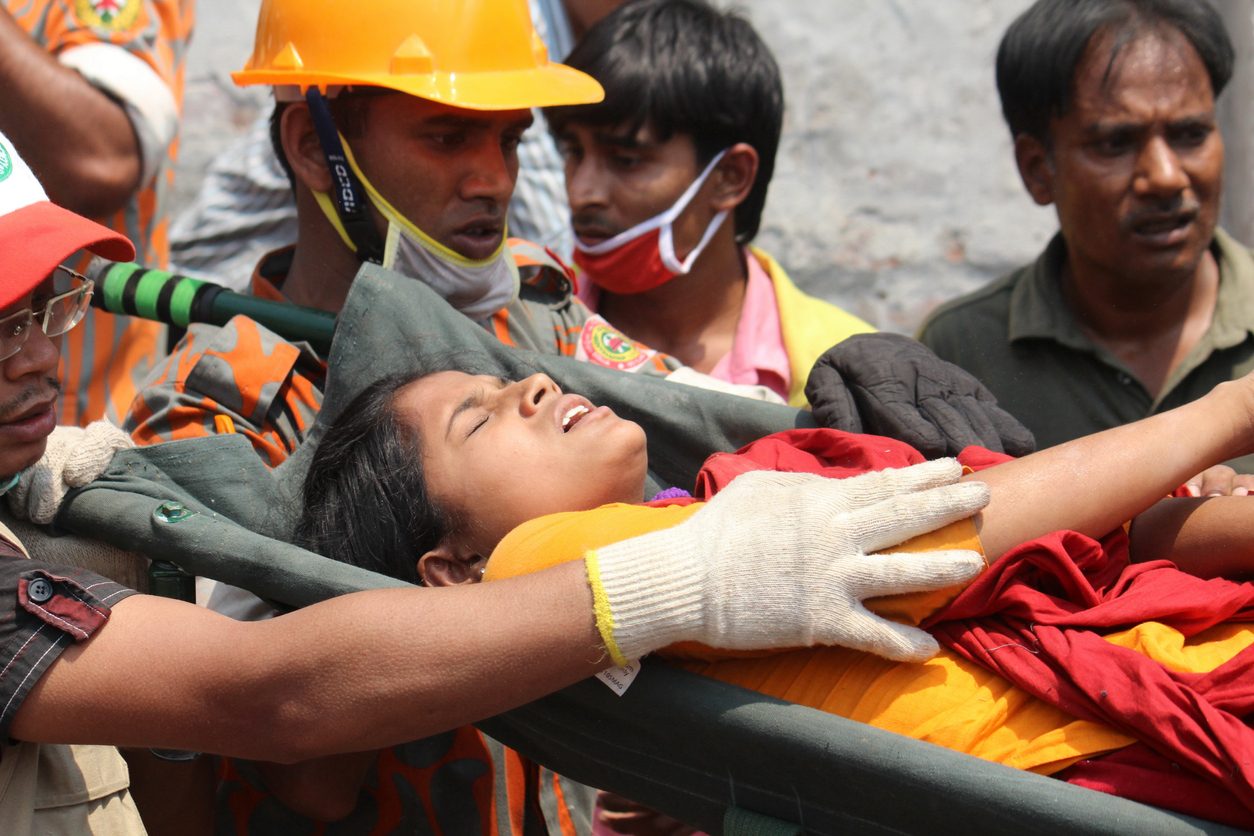
Six years after Rana Plaza, workers’ rights still not respected in Bangladesh
April 24 marks the 6th anniversary of the 2013 Rana Plaza building collapse that killed 1,134 garment workers in Bangladesh. Canada’s unions remain concerned about working conditions in factories where Canadian retailers source their products.
“Bangladesh is the world’s second-largest garment exporter. Roughly 4 million people work in the country’s four thousand plus factories. Nearly 80 percent of these workers are women,” said the Canadian Labour Congress (CLC) President, Hassan Yussuff. “Garment sector wages are far below the level of a living wage that meets workers’ basic needs, and workers are repressed when they try to exercise their fundamental rights.”
In January, government and factory owners again attempted to stifle workers’ wage protests with violence and intimidation. Many demonstrators were injured. Dozens of workers were arrested and thousands were dismissed and blacklisted from future factory jobs.
Health and safety in factories has improved under the inspection system pioneered by the Bangladesh Accord on Building and Fire Safety, an agreement between over 200 brands and global unions, introduced after the Rana Plaza disaster. However, the government of Bangladesh is working to eject the accord from the country and assume responsibility for factory inspections. There is global concern from governments, retailers and unions that the regulatory capacity and measures required for this handover have not been met, and an early transition will cost workers their lives.
“Canadian unions continue to stand in solidarity with Bangladesh garment workers and are engaged with leading Canadian retailers to promote labour rights in their supply chains,” said Yussuff.
On this sombre anniversary, we call on the Canadian government to work with their counterparts in Bangladesh to promote fundamental rights, and health and safety at work, and to change the climate of fear and repression that garment workers currently face. The CLC asks that Canada review its system of preferential access to Canadian markets to ensure that access is conditional on respect for labour and human rights. The federal government must require that all companies importing garments and textiles into Canada publicly disclose factory locations ensuring respect for labour rights in their supply chains. Canada’s unions also call on Canadian retailers and brands to ensure rights are respected throughout their supply chain and to increase the transparency of their practices.





